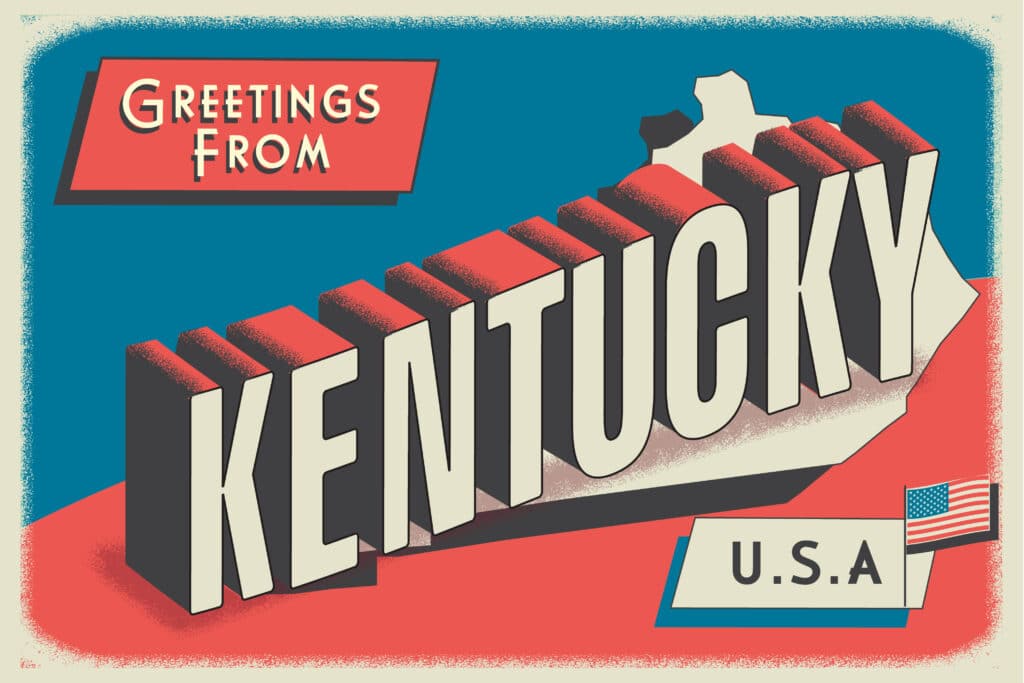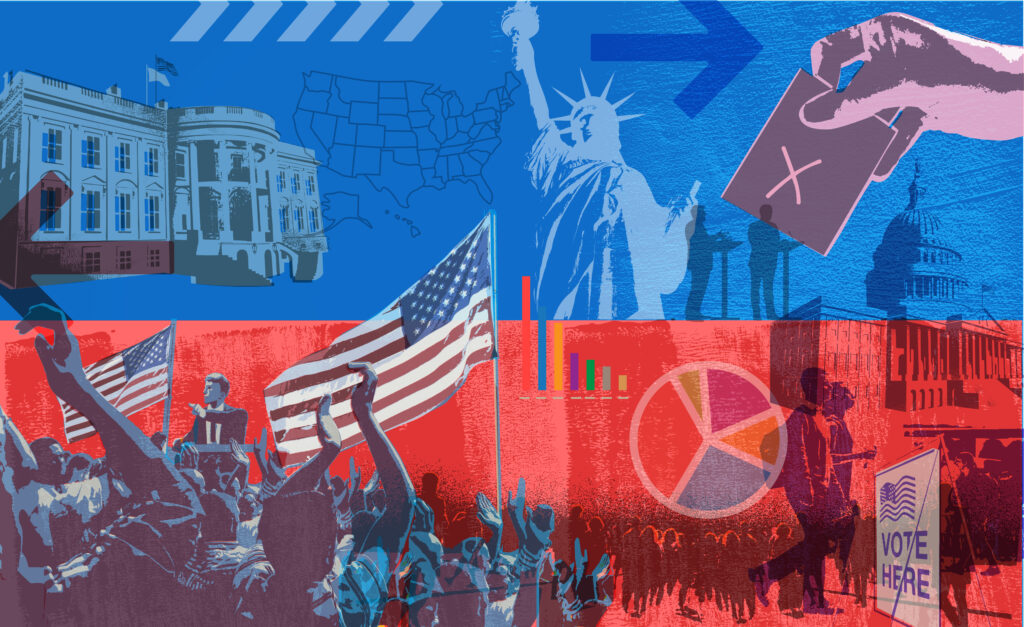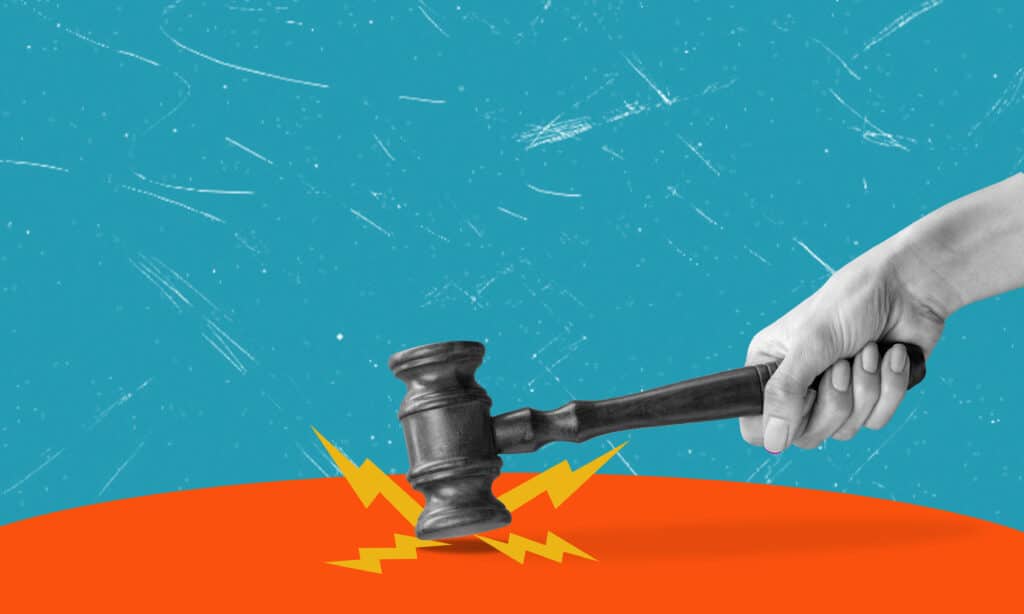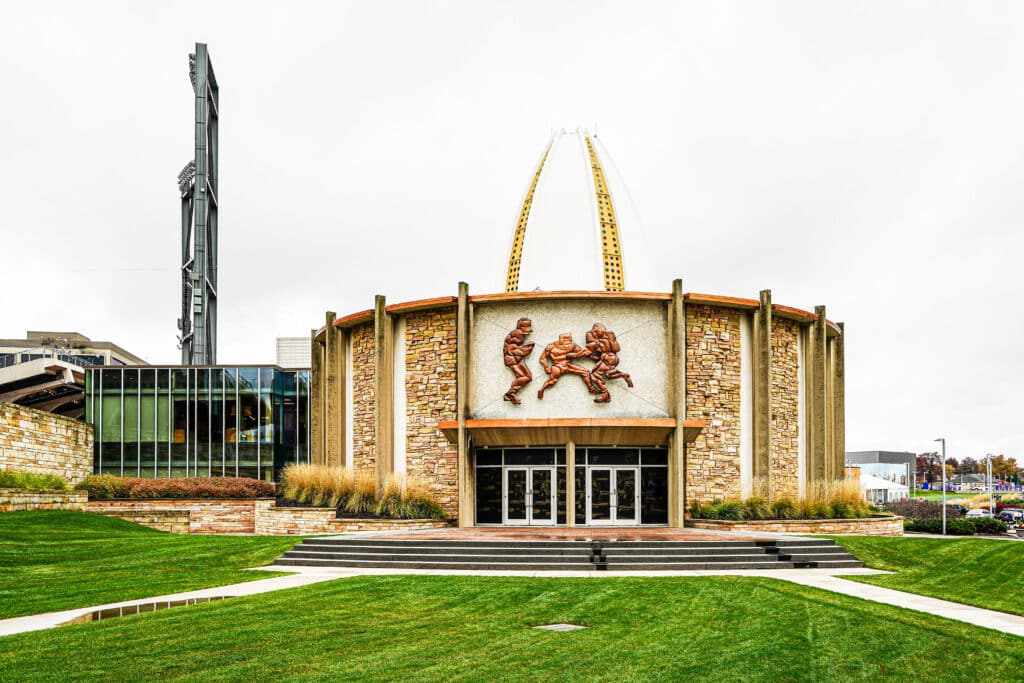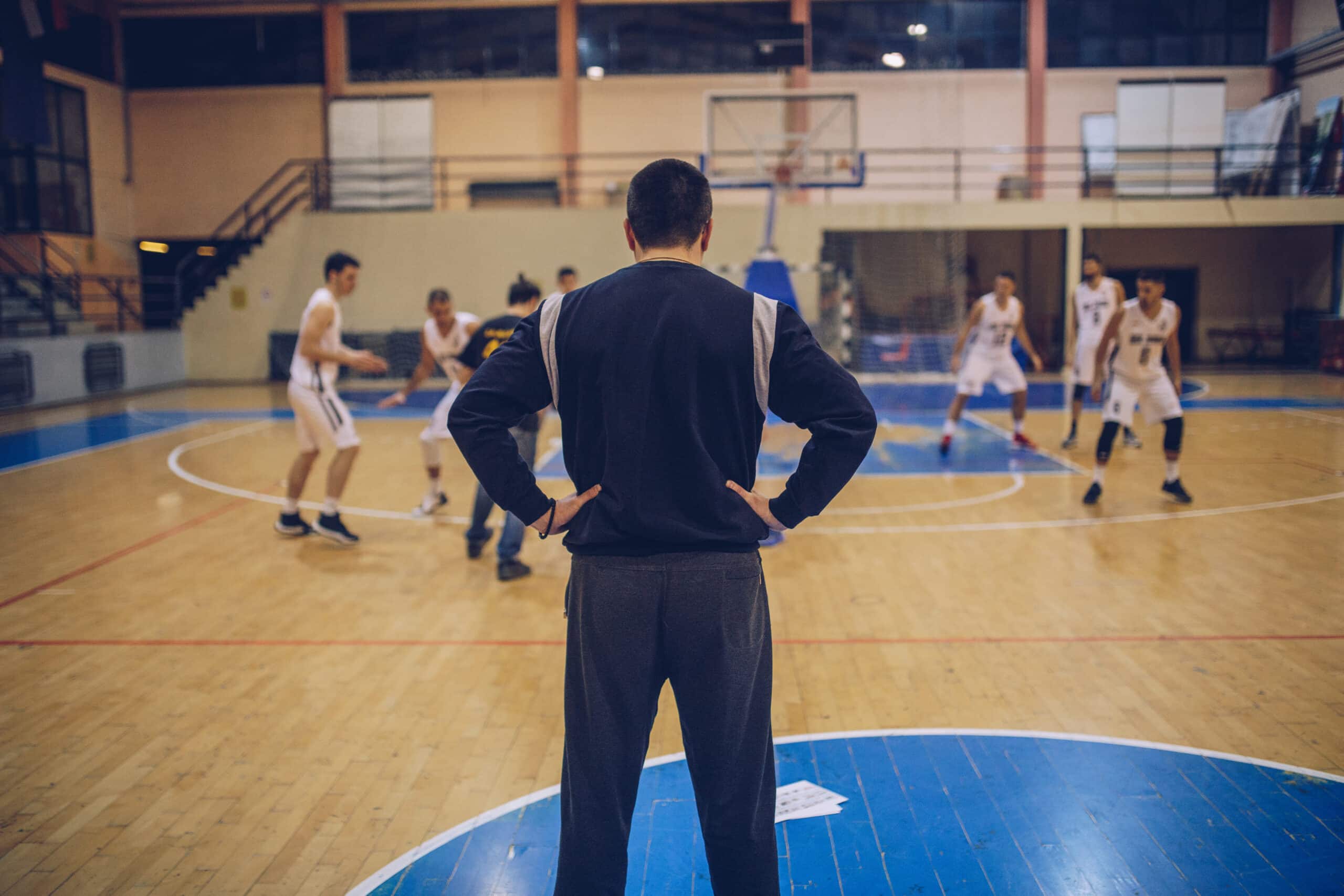
Coach K Talks Leadership, Vulnerability, and the Greatest Rivalry in Sports

In an interview conducted on-site at The Council's Insurance Leadership Forum last Fall, Leader's Edge spoke with Mike Krzyzewski, former head coach for Duke University men's basketball and the Team USA Olympics team.
Krzyzewski shares stories of leadership, talent, and rivalries with Editor-in-Chief Sandy Laycox, who attended the University of North Carolina, Duke’s primary rival. Although Krzyzewski is retired, the rivalry burns strong.
Read the Transcript
Disclaimer: Podcast transcriptions are computer generated, please excuse errors. For the most accurate version of the conversation, please refer to audio.
Coach K: I want that player to know that whenever he needs help at any time – for him to show his vulnerability, I’m not going to look at him like he’s weak. I’m going to look at him that he’s strong by being able to express that because he then, if he doesn’t handle it, is the one who plays defense on himself. If someone’s going to stop you, it should be somebody else. You shouldn’t beat yourself.
Sandy Laycox: Welcome to the Leader’s Edge podcast, I’m Sandy Laycox, editor in chief of Leader’s Edge. This is the final episode in our very special series recorded during the 2024 Insurance Leadership Forum at the Broadmoor in Colorado Springs, Colorado. In honor of March Madness, we bring you coach Mike Krzyzewski, one of the greatest basketball coaches of all time. And I say that as a graduate of the University of North Carolina, the biggest rival Coach K ever had, despite absolutely bleeding Tar Heel Blue. I was honored to sit down with Coach K and talk leadership, coaching talent, and, of course, rivalries. With no further ado, here is coach Mike Krzyzewski.
Sandy Laycox: First question. I will have to be honest with you. I am a Tar Heel.
Coach K: Good. They need fans, too.
Sandy Laycox: So you were a huge part of my college. It was always very exciting when we played Duke
Coach K: It’s the best rivalry.
Sandy Laycox: I wanted to ask you as a leader and a coach, what is the importance of having a real worthy rival for your coaching as well as your leadership?
Coach K: Well, I think when you have, like, when you play against great teams and if one of those teams is somebody who play twice a year and every year, and you’re close to one another, like us in North Carolina, you can bring out the best and it can elevate you. Like, North Carolina was coached by one of the greatest coaches of all time and Dean Smith. And you learn from competing against him. However, what I would say about I don’t believe in having one rival. I don’t think you become a champion if beating your rival is a championship. When I was a cadet at West Point, we have a rivalry, Navy. And so, when I was a senior, the freshman would salute and say, beat Navy. And I got them all together. I said, I never want you to say that again.
And what I want you to say is, beat everybody. If we believe everyone’s our rival, then when we actually get to that great rival who have a better chance of winning, and I totally believe in that, they don’t put banners up for beating one team. They put banners up for winning championships. And were Always in pursuit of a championship.
Sandy Laycox: Which is a better rivalry? Duke, UNC or Army Navy?
Coach K: No, I think the greatest rivalry in sport is Duke in North Carolina. It’s kind of hard to explain. In the last part of my career, Roy Williams was the coach and one of the great coaches, hall of Fame coaches, but also a good friend. And we would always talk about how lucky the two of us were to coach at our respective schools because the attention of the entire sports world was on our contests. It elevated our programs, it elevated our schools, it elevated basketball and the Atlantic Coast Conference and basketball in general. So that’s why I consider it the best one. And the fans don’t like one another. That’s putting it nicely. But actually, the coaches and the players pretty much get along. You know why? Because we respect each other. And there’s unbelievable respect for one another.
Sandy Laycox: Absolutely. And I would say even among the Fans
Coach K: I don’t think they like me. In fact, I’m positive they don’t. But that’s okay. If you’re not liked because you’re really good, that’s okay. We’re really good. And so are they. Sometimes we got in each other’s way.
Sandy Laycox: We have sort of a lot in common. My dad didn’t go to West Point, but he had summer jobs moving everybody in. So maybe he moved you in
Coach K: As a plebe you’re not moved down, as a freshman.
Sandy Laycox: Maybe later.
Coach K: I was probably helping your father move some of the upper classman. But no. God bless. So did he live around there?
Sandy Laycox: Yeah, he’s from Newburgh, New York.
Coach K: Oh, right.
Sandy Laycox: So yeah. Yes, that was his job.
Coach K: No, I. You know, there’s so many people behind the scenes at every school but at West Point that create an environment that’s conducive to having such a high quality education, including the people who move in, the people who serve you, the people who clean, the people who teach you. They all should be respected because they create an environment that’s top notch.
We then talk about Coach K’s decision to become a basketball coach, who inspired him and how he found his direction as a younger man.
Sandy Laycox: How did you figure out you wanted to be a basketball coach versus you said out there I decided I didn’t want to be the guy who was shooting how it says.
Coach K: I knew I wanted to be a basketball coach. When I was 16 and my high school coach had a big effect on me. And I went to a Catholic school and a priest there, Father Rogue, who was a lifelong friend, he passed about two years ago. He explained religion to me when I was 16, so that I could understand it. And my coach made me better. I really wanted to be a high school coach and teacher because I didn’t know that people could do that – make you better and clear things up for you. I wanted to be one of those people. When I went to West Point, I was, like, going on, in a good sense, steroids and the opportunities that were created.
I’m still a teacher and a coach, but as a result of being fortunate enough to take that path, I was afforded opportunities and learn things at a level that created immense opportunities for me. But I’m 77, so for like six decades, I’ve done what I wanted to do. My buddies back in Chicago say I never worked a day in my life. And I said I worked pretty hard, but I always loved my work. If you can find the love of what you’re going to work on, that’s being very lucky and very successful.
Sandy Laycox: One of Coach K’s leadership points is that leadership lessons can be very simple. So I asked him, in the ever complicated world of risk, advanced technology, and all that it brings, how can insurance leaders see through it? To learn the simple lessons?
Coach K: It’s really something they need to do. Because if with your teams, if you can talk about relationships and how you’re making each other better, then the complexities of the changes that are going on in AI or your business are more easily understood because of the relationship that you have, and you feel better about yourself. The most important resource of every organization is its people. And how do you make your people feel good, feel part of what you’re doing and how they can get better and that you’re concerned about them and talking about these things, besides getting pay raises and benefits and all that, which are incredibly important, people still like to know that you care and you care by talking about some of these. They’re simple things, but they’re overlooked.
And especially what’s overlooked is why your organization is doing something and where everyone say, yeah, I’m helping out there. I’m part of the changes we made are going to help X number of people more and all that. And those things should be made available to your team. Like, it’s not just, you know, we’ve gone up by 4% and income or whatever it is in revenue. But boy, we’ve impacted X amount more people as a result. We’re affecting in a positive way different people from different areas, we’ve penetrated different things where people will feel good about that. That doesn’t mean they wouldn’t feel good about getting paid more. But it’s a combination. And by the way, if they feel good, they’re going to do a better job. They’re going to do a better job.
Sandy Laycox: And you also on that you mentioned when you were talking the importance of asking people what they think. I feel like that kind of plays into everything you’re saying.
Coach K: It does. You know, it makes you a leader cannot see everything – impossible. And the bigger the organization, I call it tiered leadership. Where you have leaders, everyone’s important, but they’re at different tiers, different levels, not of importance but of functionality and how they interact. And if they see something or people on their team see something at one level, it may never get to the ultimate leader because it’s being taken care of. And then when the overall leader has his or her meeting with a leadership group, they should ask about, tell me about the situations that you’ve been in that you’ve been able to deal with and how you’ve done it. So then just like in this conference at a high level, they’re sharing best practices in a team level.
Somebody at one tier that you think, wow, that’s we can skip that figures out they handle a situation, and it impact, wow, I didn’t think of that. That’s what I should be doing. And so the internal study of leadership or teaching of leadership is incredibly important in the functionality of an organization.
Sandy Laycox: We then talk about mental health and how you lead great talent through the less obvious challenges of growth and learning.
Sandy Laycox: You’ve had some controversial but great players over the many years, but obviously you can see when they’re really good and talented even if they’ve got other stuff going on. How do you coach a player like that who has obvious real success possibilities but also has, you know, other challenges that you have to deal with as.
Coach K: Well as our coach, I love coaching great talent and great talent can be lonely if you’re that best player. And so that’s why I’ve tried to be coach them the hardest but be their best friends and as their status grows because of their talent and their accomplishment, talent well positioned leads to accomplishment, leads to more things that are going to happen for that talent that you’re there every step of the way. And I’m a big believer in mental health. And so we always had counselor and even with our Olympic teams where we said you need to talk, your teammates are not going to be able to help you and your parents may not be able to help you. I might be able to help you, but can we help you more? And it’s okay to share your concerns, your anxieties, your fears.
You know, a lot of times a great player, I can’t show fear. But you do fear and how do you handle that? I’ve loved that. And that’s part of coaching. And it may be that it’s not me that does it. I want that player to know that whenever he needs help at any time, not just help like I’m going to do something crazy, but I’m having a tough time with this for him to show his vulnerability and take advantage of our relationship. And I’m not going to look at him like he’s weak. I’m going to look at him that he’s strong by being able to express that because he then, if he doesn’t handle it, is the one who plays defense on himself.
You know, you want, if someone’s going to stop you, it should be somebody else or you know, beat you shouldn’t beat yourself. And so it. And there’s not one book on it or whatever.
Sandy Laycox: Wouldn’t that be nice?
Coach K: Yeah. And it all starts with having an honest, trusting relationship from the beginning with the young man or with the Olympic player or whatever. Although they don’t to be, quite frankly. A few of those guys had that they actually traveled with somebody who would give themselves mindfulness, working with them physically and eating wise, but also mind wise because they understood how important all three were.
Sandy Laycox: Still on talent, I asked the coach what advice he had for the insurance industry in its task to recruit and retain the next generation.
Coach K: Well, in any industry, one, you’re fortunate to get young talent. To make sure that young talent can get better. You’re not just using the talent that they’ve shown and putting them in a box. You’re able to show them that. And that means advance, obviously position advancement, but also individual advancement. Like how can I get better? And take their input, ask for their input. In other words, don’t have them work for you, have them own it with you. And still we have a younger society right now that wants to advance quicker. But at the end of the day, a lot of people still want to be part of something bigger than themselves. And if they see themselves growing and seeing the sense of worth of what they’re doing, but they have to see themselves growing.
And that’s not just in pay or position, but how am I getting better? Otherwise? They feel stagnated. And I think the companies that just use them for their talent instead of developing, it’s kind of like a great player. You can use that player, but if you develop that player, you’re using them and you’re getting better and they’re getting better. So to try to figure that out. But still, it’s a challenge because of what friends, even if you’re doing that with friends of their age at other organizations are saying, man, I’m not. They’re moaning about what’s going on. It is a difficult thing, but that would be my recommendation.
Sandy Laycox: Finally, some free advice from one of the goats. For parents of young athletes, my big takeaway. Get out of their way.
Coach K: Play more than one sport. When you go and see him play, don’t coach him. And tell the coach that you want him or her to coach him and coach him hard and you have the coach’s back after he plays. Don’t keep stats of him. You know, the very first thing is that, did you have fun today? Especially at this age? Did you have fun playing? It’s got to be fun. The guys who are really good love playing because it’s fun. And then, just like I said out there, how did you feel about. About today? I felt good. Well, don’t get down on yourself for that one thing. And by the way, if you missed some shots or whatever, the best players in the world don’t hardly ever shoot 50%. It’s what they do after a miss. I call it next play.
Just keep playing next play. And don’t make it be a burden. Parents get in the way of their kids right now, and they ask the wrong questions or their egos are attached to what the kid is doing. Come on, he’s 11. Let’s get over it. You know, like, I want my. My kid to have fun, to improve and have a joy. Have a joy of playing, and he’ll get a lot better. But the playing of two sports and his role may be different on either team.
Sandy Laycox: They are.
Coach K: Yeah, which helps. And their development. Sports should be part of a curriculum. Like at West Point, our thing was every cadet and athlete throughout the year, either intramural, club, or varsity, you have to be a part of a team because you learn things by being in different positions. Camaraderie, loyalty, all that. There are a lot of lessons to be learned, not just, I’m going to be a pro. I’m going to be this, I’m going to be that. And if he does that, by the time he is that sophomore, junior in high school and says, you know, I’m pretty good, yeah, then you can start taking it a little bit differently, but still not forgetting about the joy and having fun.
Sandy Laycox: That was the great coach Mike Krzyzewski on the Leader’s Edge podcast. What an honor. I hope you enjoyed it as much as I did. Thanks for listening.
For more Leaders Edge podcasts, go to leadersedge.com.

